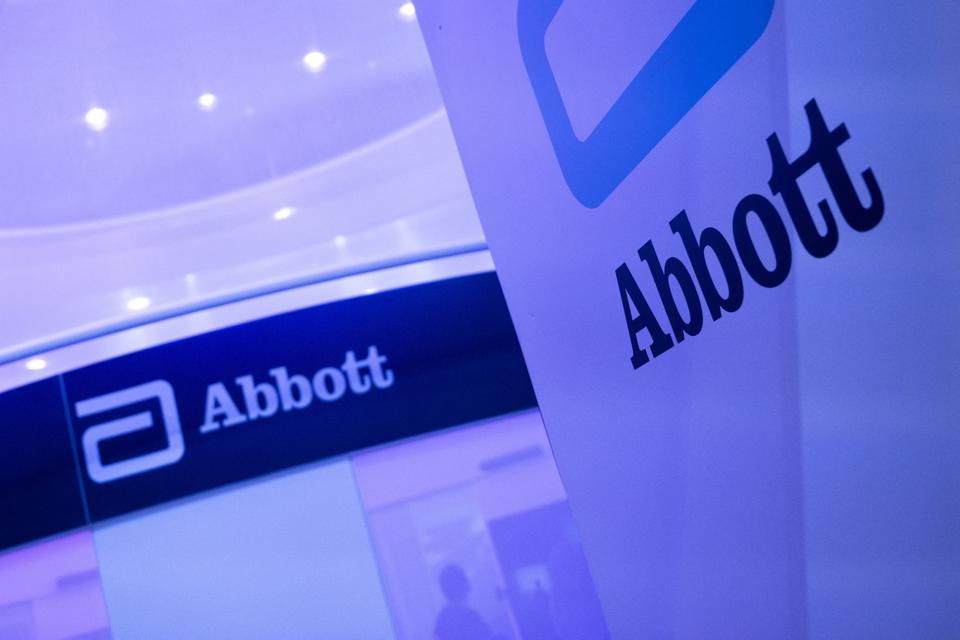Abbott (NYSE: ABT) recently reported its Q1 results, with revenues above and earnings exceeding our expectations. The company reported revenue of $10 billion and earnings of $0.98 on a per-share and adjusted basis, compared to our estimates of $9.9 billion and $0.95, respectively. The company saw strong growth for its medical devices business, while diagnostics sales trended lower. In this note, we discuss Abbott’s stock performance, key takeaways from its recent results, and valuation.
Firstly, looking at its stock performance, ABT stock has seen little change, moving slightly from levels of $110 in early January 2021 to around $105 now, vs. an increase of about 35% for the S&P 500 over this roughly three-year period. Overall, the performance of ABT stock with respect to the index has been lackluster. Returns for the stock were 29% in 2021, -22% in 2022, and 0% in 2023. In comparison, returns for the S&P 500 have been 27% in 2021, -19% in 2022, and 24% in 2023 — indicating that ABT underperformed the S&P in 2022 and 2023.
In fact, consistently beating the S&P 500 — in good times and bad — has been difficult over recent years for individual stocks; for heavyweights in the Health Care sector including LLY, UNH, and JNJ, and even for the megacap stars GOOG, TSLA, and MSFT. In contrast, the Trefis High Quality Portfolio, with a collection of 30 stocks, has outperformed the S&P 500 each year over the same period. Why is that? As a group, HQ Portfolio stocks provided better returns with less risk versus the benchmark index; less of a roller-coaster ride, as evident in HQ Portfolio performance metrics.
Given the current uncertain macroeconomic environment with high oil prices and elevated interest rates, could ABT face a similar situation as it did in 2022 and 2023 and underperform the S&P over the next 12 months — or will it see a strong jump? From a valuation perspective, ABT stock looks like it has some room for growth. We estimate Abbott’s Valuation to be $123 per share, reflecting over 15% upside from its current levels of $105. At its current levels, ABT stock is trading at a little under 23x forward earnings, compared to the 25x average seen over the last three years. Abbott has narrowed its adjusted earnings per share guidance from $4.50 to $4.70 earlier to $4.55 to $4.70 now.
Abbott’s revenue of $10 billion in Q1 was up 2.2% y-o-y. The company reported a 14% jump in medical device segment sales, nutrition was up 5%, and established pharmaceuticals saw a 3% rise in revenue. Growth in these segments was partly offset by an 18% fall in Diagnostics revenues due to lower demand for COVID-19 testing. Excluding the Covid-19 tests, the Diagnostics sales were up 2.7%. Within medical devices, diabetes sales were up 19.5% led by FreeStyle Libre. Abbott expects its total 2024 revenue to rise 8.5% to 10% on an organic basis. The company saw its adjusted pre-tax income margin decline 120 bps y-o-y to 20.4% in Q1. This resulted in a 5% fall in the bottom line to $0.98 on an adjusted basis.
Overall, Abbott posted upbeat results, but the decline in margins was a little letdown. The stock has declined around 5% in the last five days, and we think it now has some room for growth.
While ABT stock looks like it has some room for growth, it is helpful to see how Abbott’s Peers fare on metrics that matter. You will find other valuable comparisons for companies across industries at Peer Comparisons.
Invest with Trefis Market Beating Portfolios
See all Trefis Price Estimates

